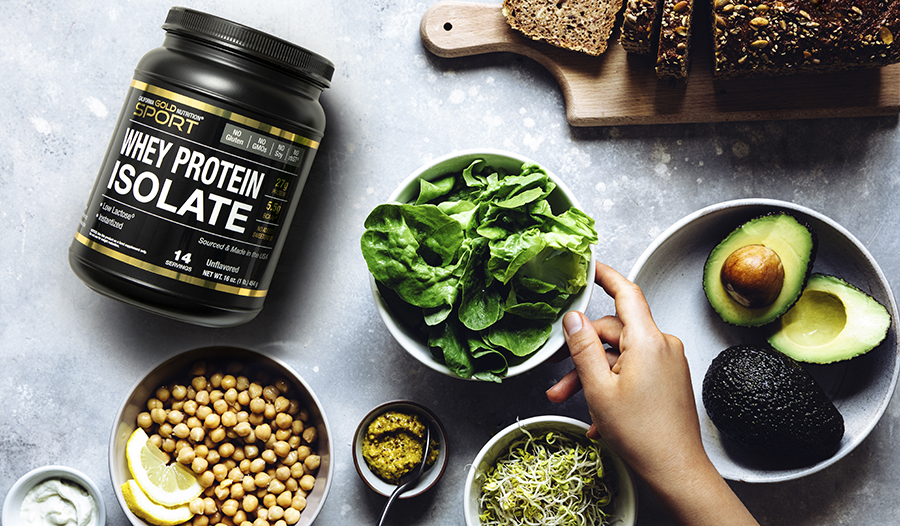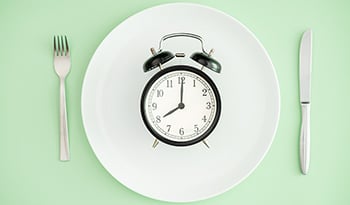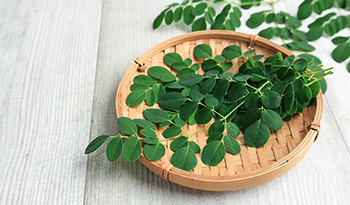Вас 9 пъти за ястие по него на следващата гладума за диетене

Какво е периодично гладуване?
Периодното гладуване (IF) е хранителен модел, при който се движи между периоди на хранене и гладуване (без ядене). Оптималното периодично гладуване включва и здравословни храни, които трябва да се консумират, но е също толкова важно да се помисли кога да ги консумирате.
От всички заслужаващи диети като Кето диета, Диета Дюканили Палео диета, периодичното гладуване (IF) в момента е една от най-популярните здравни тенденции в света и е привлякла голямо внимание - по добра причина. През цялата история постът е бил част от живота на много хора, независимо дали по лични, духовни или религиозни причини или просто защото нямат достъп до храна.
Научните доказателства показват колко мощно е периодичното гладуване за нашето здраве, тегло, метаболитно здраве и стареене. Може да има множество ползи от гладуването, включително повишена чувствителност към инсулин, загуба на мазнини, включително мазнини в корема, подобрени профили на холестерола, повишено производство на растежен хормон (HGH) и подобряване на здравето на червата.
Видове периодично гладуване
- Метод 12:12: Постенето в продължение на 12 часа всеки ден, като ядете само между 7 и 19 часа.
- Метод 16:8: Постете по 16 часа всеки ден, като ядете само между обяд и 20 часа.
- Eat-Stop-Eat: Веднъж или два пъти седмично не яжте нищо от вечерята един ден, до вечерята на следващия ден (24-часов пост).
- Диета 5:2: През 2 дни от седмицата ядете само около 500—600 калории.
Тъй като част от деня ви ще бъде прекаран на гладно, важно е да мислите стратегически за начини за включване на адекватно хранене. Яденето на диета с високо съдържание на рафинирани въглехидрати като брашно и захар, рафинирани масла като соеви или растителни масла, твърде малък прием на протеини, липса на зеленчуци и нездравословни закуски като чипс само ще премахнат ползите за здравето, които получавате от гладуването. Яденето на грешни храни ще противодейства на ползите от периодичното гладуване.
Какво трябва да ям по време на периодично гладуване?
Така че сега знаете кога да ядете, може да се чудите какво можете да ядете по време на периодичния си прозорец за хранене на гладно. Много от методите за периодично гладуване означават, че може по невнимание да пропуснете специфични макронутриенти като протеин или здравословни мазнини или микроелементи като витамин А, витамини от група В, витамин С, витамин D, цинкили електролити.
Важно е да се уверите, че ядете пълноценно и удовлетворяващо хранене - сега не е моментът да се занимавате с нискокалорично хранене. Целта е да получите цялото си хранене от по-малко ястия.
Ето най-добрите храни, които трябва да ядете по време на гладуване.
Протеин
Протеинът е жизненоважен за цялостното ви здраве, имунното здраве и за поддържането на мускулната маса. Мускулите са необходими за оптимизиране на баланса на кръвната захар и поддържане на метаболизма си висок. Липсата на мускули може да насърчи наддаването на тегло, по-високата кръвна захар и крехкостта.
Не забравяйте да включите култивирани протеинови храни като обикновено кисело мляко, кефир, мътеница или извара във вашата периодична диета на гладно, тъй като тези храни са богати на пробиотици за поддържане на здравословен чревен микробиом.
Оптималните източници на протеини включват:
- Сьомга
- Яйца
- Рибей пържола
- Свински котлети
- Пилешки бедра
- Извара
- Обикновено кисело мляко
- Обикновен кефир
- Суроватъчен протеин на прах (без добавена захар)
- Грахов протеин на прах (без добавена захар)
- Бобови растения
- Ядки и семена
Докато гладувате, може да бъде предизвикателство да имате адекватен прием на протеин. Добавянето на протеинов прах по време на хранителния период може да бъде от голяма полза чрез добавяне на специфични аминокиселини като L-глутамин или аминокиселини с разклонена верига (BCAA).
Здравословни мазнини
Здравословните мазнини са от решаващо значение за оптималното здраве. Много хора обаче се страхуват от мазнини, но не трябва. Здравословните мазнини са необходими за здравето на клетките, енергията, производството на хормони, изолацията, за да ни стопли, и защита на нашите органи. Добавянето на мазнини към диетата е необходимо за метаболизиране на мастноразтворими хранителни вещества като витамин D, витамин Е, мултивитамини, или дори билки и подправки като куркума или розмарин. Тези витамини се нуждаят от мазнини и не се разтварят с вода.
Източниците на здравословни мазнини включват:
- Зехтин
- Масло от авокадо
- Кокосово масло
- MCT масло
- Гхи
- Авокадо
- Ядки и ядково масло
- Чиа семена
- Ленени семена
- Маслини
Риба и морски дарове
Морските дарове от всякакъв вид са отличен избор по време на периода на периодично хранене на гладно. Рибите като дивата сьомга или сардини са с много високо съдържание не само на протеини, но и богати на омега-3 мазнини, които са необходими за оптималното здраве и за намаляване на клетъчното възпаление. DHA и EPA се считат за основни мазнини - омега-3 мазнини, които трябва да получаваме от нашата диета. За съжаление, при периодично гладуване мнозина имат недостиг на това необходимо хранително вещество и защо добавките биха били отличен избор в този случай.
Рибата и морските дарове за оптимизиране на периодичното гладуване включват:
- Диво уловена сьомга
- Дъгова пъстърва
- Скумрия
- Сардини
- Аншоа
- Миди
- Стриди
- Раци
- Омар
- Скариди
Зеленчуци
Зеленчуците са жизненоважни за оптималното здраве и добавянето им към вашата диета, докато IF е отлична стратегия. Зеленчуците също служат като пребиотици- растителните влакна хранят нашите здрави червни бъгове, които водят до по-здрави черва, по-стройно тяло и оптимално здраве.
Богати на хранителни вещества зеленчуци за ядене по време на периодично гладуване:
- Спанак
- Манголд
- Рукола
- Кейл
- Броколи
- Карфиол
- Брюкселско зеле
- Зеле
- Целина
- Аспержи
- Морски водорасли
Плодове
Плодовете могат да бъдат добре дошъл източник на богата на хранителни вещества храна, докато човек периодично гладува. Изборът на плодове с ниска или средна захар обаче е важен, тъй като излишното количество плодова захар (фруктоза) може да насърчи метаболитните здравословни проблеми и да отмени много от ползите, натрупани по време на IF.
Най-добрите плодове, които да изберете за периодично гладуване, включват:
- Ягоди
- Малини
- Къпини
- Киви
- Грейпфрут
- Ябълки
- Лимони
- Лайм
- Авокадо
- Домат
Пълнозърнести храни
Цели зърна са уникален вид храна, тъй като за много хора те или нямат повишен отговор на кръвната захар, възпаление или чревен дистрес, но за други имат всички гореспоменати заболявания. Ако сте от тези, които не могат да понасят зърнените храни чрез лектина или глутена, присъщи на зърната, оставете ги извън списъка си за пазаруване. Не забравяйте да избягвате всички рафинирани храни, включително зърнени храни като бяло брашно.
Здравите пълнозърнести храни, които помагат за оптимизиране на периодичното гладуване, включват:
- Органични овесени ядки
- Био просо
- Био киноа
- Органичен кафяв ориз
- Био черен ориз
- Органичен див ориз (всъщност семе)
Бобови растения и боб
Фасулът и бобовите растения са отличен избор за вашата периодична стратегия за планиране на хранене. Те често се пренебрегват, но са истински електроцентрали , пълни с фибри, антиоксиданти, протеин, витамини от група Ви други витамини и минерали. Те помагат за балансиране на кръвната захар, поддържане на глада и апетита настрана (идеални за периодично гладуване), намаляват LDL холестерола и насърчават здравето на червата, епицентърът на всеки аспект на здравето.
Богат на хранителни вещества боб и бобови растения включват:
- Черен боб
- Нахут (боб гарбанзо)
- Зелен фасул
- Леща
- Лима боб
- Боб
Билки и подправки
Билките и подправките имат мощно, мощно и противовъзпалително въздействие върху нашето здраве и също са вкусни. Те помагат да оптимизирате резултатите от периодичното гладуване. Добавете всяка билка и подправка към почти всяко хранене.
Най-добрите билки и подправки включват:
Напитки
Периодичното гладуване означава, че не можете да ядете по време на гладуването си. Добро правило, което трябва да запомните, е, че всичко с калории ще наруши поста като сода, сок и кафе или чай с всякакъв вид мляко, сметана или подсладител.
Въпреки това, докато периодично гладувате, можете да пиете вода и кафе или чай без подсладител, мляко или сметана. Всъщност кафето и чаят (зелен чай по-специално) спомагат за увеличаване на ползите от периодичното гладуване.
Най-добрите напитки за оптимизиране на периодичното гладуване включват:
за вкъщи
Периодичното гладуване е начин на хранене, който е прост и безопасен и се основава на солидни доказателства. Отиването без храна може да изглежда плашещо на пръв поглед, но когато започнете да го правите, това е наистина мощен и лесен начин за оптимизиране на цялостното здраве, теглото, здравето на мозъка и здравето на червата. Важно е да се отбележи, че гладуването може да повлияе на начина, по който тялото ви абсорбира определени витамини и лекарства, така че ще искате да ги приемате с храна.
Ако древните римляни са използвали периодично гладуване, за да останат супер здрави, силни и здрави, защо не бихме?
Препратки:
- Li Z, Huang L, Luo Y, Yu B, Tian G. Ефекти и възможни механизми на периодично гладуване върху здравето и болестите: разказващ преглед. Nutr Rev. 2023 г. 10 ноември; 81 (12): 1626-1635.
- Ma Y, Sun L, Mu Z. Мрежов мета-анализ на три различни форми на периодични енергийни ограничения за възрастни с наднормено тегло или затлъстяване. Int J Obes (Лонд). 2024 януари; 48 (1): 55-64.
- Guo M, Wang X, Li Y, Luo A, Zhao Y, Luo X, Li S. Интермитентно гладуване по неврологични заболявания: потенциална роля на чревната микробиота. Хранителни вещества. 2023 г. 24 ноември; 15 (23): 4915.
- Naous E, Achkar A, Mitri J. Периодичното гладуване и неговите ефекти върху теглото, гликемията, липидите и кръвното налягане: разказващ преглед. Хранителни вещества. 2021 август 21; 15 (16): 3661.
- Салехи Н., Уолтърс М. Кога и какво да ядем? Обхватен преглед на здравните резултати от гладуването във връзка с диета с ниско съдържание на въглехидрати. Бр Джей Нутр. 2023 г. 28 май; 129 (10): 1677-1692.
- Кавяни З, Мусазадех V, Фати С и др. Ефикасност на добавката на омега-3 мастни киселини върху възпалителни биомаркери: Общ мета-анализ. Инт имунофармакол. 2022 октомври; 111:109104
- Дифендерфер MR, Раджапаксе Н, Фам Е и др. Профили на плазмени мастни киселини: Връзки с пола, възрастта и докладваните от държавата нива на смъртност от сърдечни заболявания в Съединените щати. J Clin Lipidol. 2022 март-април; 16 (2): 184-197.
ОТКАЗ ОТ ОТГОВОРНОСТ:Този УЕЛНЕС ХЪБ няма за цел да поставя диагнози...

















































































 Съдържание
Съдържание
















